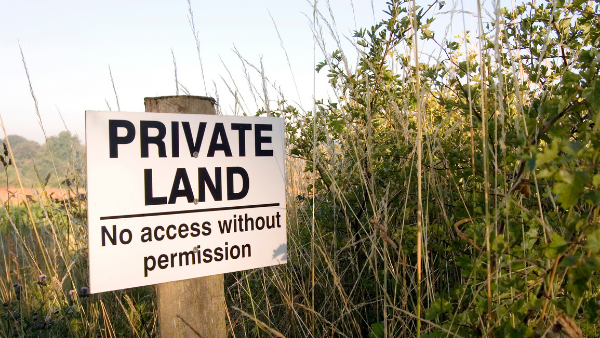Author
Adverse possession, often described as ‘squatter’s rights’, is the process by which a person who does not have legal title to the land, can become the legal owner by possessing the land for a specified period of time. We explained this topic in our Learning the Law article in the Autumn 2020 edition of Agricultural Lore.
In summary, to claim title by adverse possession, the claimant or ‘squatter’ needs to prove:
- Uninterrupted factual possession for the requisite period (10 years under the statutory regime for registered land or 12 years under the regime applicable to unregistered land, where the period of possession relied upon ends before 13 October 2003); and
- Intention to possess (to exclude the world at large).
If an adverse possession claim is successfully established, the squatter may acquire title to the land, as can be seen in the recent case of Haandrikman v Heslam [2021] UKUT 0056.
The case
Mrs Haandrikman’s father had purchased the strip of land in question in 1987. However in 1978, Mr and Mrs Atkinson, the previous owners of a nearby property, Fortuna Villa, had erected a fence along the southern boundary of the strip of land. Their son had used the strip of land to graze sheep.
Fortuna Villa was then sold to new owners in 1994. From 1994 to 2001, sheep were grazed on the land by a licensee of the new owners.
Mr Heslam purchased Fortuna Villa in 2012. In 2017, Mr Heslam applied to be registered as proprietor of the strip of land.
Issues in dispute
Mrs Haandrikman argued that the title acquired by Mr and Mrs Atkinson by way of adverse possession, was not passed when the property was sold in 1994, because there was no grazing on the land and the presence of fencing by itself was insufficient to amount to adverse possession. She also argued that grazing did not amount to adverse possession.
The First Tier Tribunal (“FTT”) found that Mr and Mrs Atkinson had been in adverse possession of the strip of land for 12 years from 1978 to 1990. Mrs Haandrikman appealed this decision.
Upper Tribunal decision
Mrs Hanndrikman’s appeal was dismissed.
The Upper Tribunal (“UT”), held that the mechanics of Mrs Atkinson’s adverse possession was acquired by common law principles as well by way of an equitable interest under trust, pursuant to section 75 of the Land Registration Act 1925.
The UT, cited the authority of Site Developments (Ferndown) Limited and others v Cuthbury Limited and others [2010] EWHC and also referred to Megarry & Wade on the Law of Real Property 7th edition 2008 which states ‘If a squatter is himself dispossessed the second squatter can add the former period of occupation to his own as against the true owner.’ On this basis, the UT found that successive squatters could take over from each other without the need for a deed or for an assignment in writing and Mrs Atkinson’s title was passed accordingly.
What is particularly relevant in an agricultural context, is the UT’s consideration of in what circumstances, acts of fencing and/or grazing of animals may amount to adverse possession.
The UT were clear in that, although every case turns on its facts, what is manifestly not correct is to argue that fencing a piece of land to keep animals out can never, as a matter of law, amount either to factual adverse possession, or to evidence of an intention to possess.
In this case the strength of the fencing was significant, as was its effect on the rest of the world; it completely blocked access to the strip of land for the registered proprietor and indeed for anyone seeking to enter from the south.
Although authority exists to the effect that grazing does not amount to adverse possession, in this case the FTT had not found that at any time the only act of adverse possession was grazing. The UT found that adverse possession was taken by virtue of both fencing and grazing in 1978. The possessor at that time (Mrs Atkinson), remained in adverse possession even after grazing had ceased on the strip of land.
Impact on landowners
Notwithstanding that grazing alone does not give rise to adverse possession, this case demonstrates that grazing is, nonetheless, a significant factor in determining adverse possession and one of which land owners, in particular, should take heed. Land owners should also remain cautious that adverse possession does not necessarily cease, when grazing is not happening. It is therefore important to consider all of the facts carefully, in order to establish whether adverse possession has arisen.
Print article

